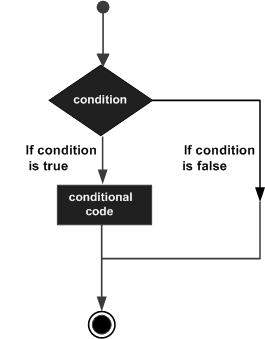
- Go Tutorial
- Go - Home
- Go - Overview
- Go - Environment Setup
- Go - Program Structure
- Go - Basic Syntax
- Go - Data Types
- Go - Variables
- Go - Constants
- Go - Operators
- Go - Decision Making
- Go - Loops
- Go - Functions
- Go - Scope Rules
- Go - Strings
- Go - Arrays
- Go - Pointers
- Go - Structures
- Go - Slice
- Go - Range
- Go - Maps
- Go - Recursion
- Go - Type Casting
- Go - Interfaces
- Go - Error Handling
- Go Useful Resources
- Go - Questions and Answers
- Go - Quick Guide
- Go - Useful Resources
- Go - Discussion
Go - Decision Making
Decision making structures require that the programmer specify one or more conditions to be evaluated or tested by the program, along with a statement or statements to be executed if the condition is determined to be true, and optionally, other statements to be executed if the condition is determined to be false.
Following is the general form of a typical decision making structure found in most of the programming languages −

Go programming language provides the following types of decision making statements. Click the following links to check their detail.
| Sr.No | Statement & Description |
|---|---|
| 1 |
if statement
An if statement consists of a boolean expression followed by one or more statements. |
| 2 | if...else statement
An if statement can be followed by an optional else statement, which executes when the boolean expression is false. |
| 3 |
nested if statements
You can use one if or else if statement inside another if or else if statement(s). |
| 4 |
switch statement
A switch statement allows a variable to be tested for equality against a list of values. |
| 5 |
select statement
A select statement is similar to switch statement with difference that case statements refers to channel communications. |